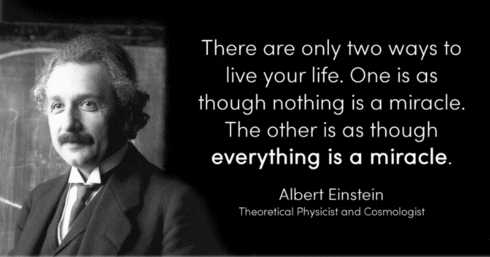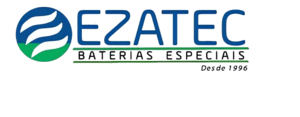No Blog Eletrônica de Potência você encontrará informações sobre teses,artigos,seminarios,congressos,tecnologias,cursos,sobre eletrônica potência. “TEMOS O DESTINO QUE MERECEMOS. O NOSSO DESTINO ESTA DE ACORDO COM OS NOSSOS MERITOS” ALBERT EINSTEIN. Imagination is more important than knowledge, for knowledge is limited while imagination embraces the entire world. EL FUTURO SE CONSTRUYE HOY,EL SUCESSO NO ES FRUTO DE LA CASUALIDAD,SE HUMILDE ,APRENDE SIEMPRE CADA DIA.
AUTOR DO BLOG ENG.ARMANDO CAVERO MIRANDA SÃO PAULO BRASIL

.gif)
“GRAÇAS A DEUS PELA VIDA,PELA MINHA FAMÍLIA,PELO TRABALHO.PELO PÃO DE CADA DIA,POR NOS PROTEGER DO MAL”
“SE SEUS PROJETOS FOREM PARA UM ANO,SEMEIE O GRÂO.SE FOREM PARA DEZ ANOS,PLANTE UMA ÁRVORE.SE FOREM PARA CEM ANOS,EDUQUE O POVO”


https://picasion.com/


terça-feira, 11 de abril de 2023
sexta-feira, 24 de março de 2023
Analysis and design of a Forward Converter by EV2. C. Arboy et B. Cousin-PROJET DE FIN D’ETUDES GENIE ENERGETIQUE-Universidade Federal de Santa Catarina. Instituto de Eletrônica de Potência
Analysis and design of a Forward Converter.
ABSTRACT
Our project consists in the study, the design and the realization of a Forward converter. The design of a forward converter demands great precision when calculating the different parameters and restrictions that will have to be applied when conceiving the model. The first step was the understanding of the forward converter in order to know the main parameters needed and the different mathematical equations for the choice of the different components of the forward. The use of the software PSIM completes this work for the comprehension,the collection of different values and for the checking of the circuit calculations. Once this had been done it was possible to proceed to the construction and to the test the forward converter in the laboratory. These different tests allowed us to validate the performed design and simulations. Then we have controlled the output voltage of the forward converter with a feedback control circuit in order to assure the optimal function of the forward and automatic control of the different parameters.
RESUME Ce projet a pour but l’étude et la réalisation complète d’un convertisseur Forward s’inscrivant dans un cahier des charges bien précis afin d’être tester. Un travail préliminaire portant sur l’étude qualitatives du convertisseur permet de dégager les nombreux paramètres qu’il sera nécessaire de surveiller ainsi que d’obtenir les différentes équations mathématiques utiles pour dimensionner les éléments constitutif du convertisseur. La simulation par outil informatique vient compléter cette démarche amont et nous aide ainsi à accéder à des résultats qu’il convient de confronter une fois le prototype réaliser. Ensuite le convertisseur une fois dimensionner, en ayant respecté au maximum le cahier des charges est construit puis testé. Ces différents tests nous permettent de valider notre convertisseur et les simulations effectuées. Enfin l’intégration dans une chaine de contrôle permet d’asservir le convertisseur tout en assurant un fonctionnement optimal de ce dernier et le contrôle des différents paramètres.
VIEW FULL TEXT: https://www.mediafire.com/file/l8fv816xqzvk8eq/Relatório+-+ANALYSIS+AND+DESIGN+OF+A+FORWARD+CONVERTER+(1).pdf/file
CONVERSOR PUSH-PULL ALIMENTADO EM CORRENTE-CURRENT-FED PUSH PULL CONVERTER
FIGURA 1
A Figura 1 mostra o conversor push pull alimentado em corrente, onde o comando das chaves ´e realizado com frequencia de chaveamento constante e razâo ciclica variavel. O conversor opera em modo de condução contınua, onde a tensâo de entrada CC em conjunto com o indutor de entrada formam uma fonte de corrente.
domingo, 19 de março de 2023
UNIVERSIDAD NACIONAL MAYOR DE SAN MARCOS La historia de Aldair Escobar Gutiérrez, el capitán de Selección de Taekwondo UNMSM-INGENIERIA ELECTRONICA-LIMA-PERU
segunda-feira, 27 de fevereiro de 2023
Robust Control of a Multi-phase Interleaved Boost Converter for Photovoltaic Application using μ-Synthesis Approach-by Badur Mueedh Alharbi University of Arkansas, Fayetteville
Robust Control of a Multi-phase Interleaved Boost Converter for Photovoltaic Application using μ-Synthesis Approach





















